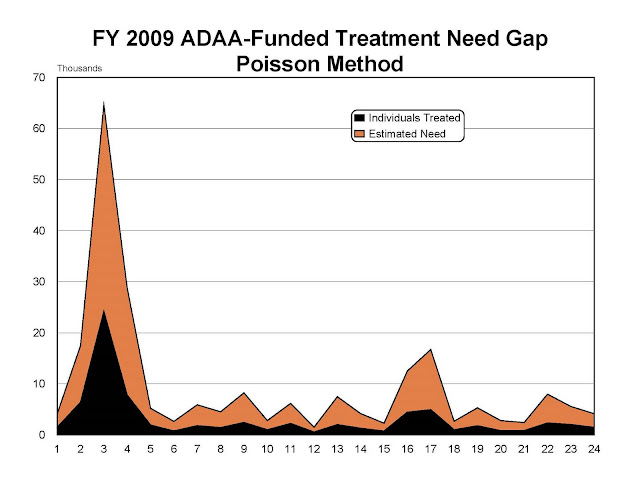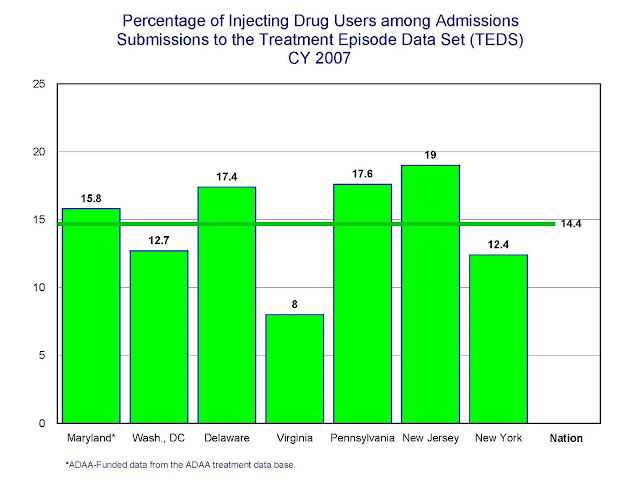Wednesday, December 15, 2010
Thursday, September 30, 2010
Tuesday, August 31, 2010
Wednesday, August 4, 2010
Tuesday, August 3, 2010
Friday, July 23, 2010
Thank You Ma'am
I had only been working at the ADAA for about three months when I was sent out with a group to meet with a provider to address their concerns about reporting data. This was right in the middle of the big push to get every provider, funded and non-funded, reporting data on the same system. Despite only being at the ADAA for a few months, I had already experienced the ETL (Extraction, Transformation, and Loading) headache caused by the hodgepodge of data reporting tools and formats throughout the state. Therefore, standardizing the way providers reported their data was very exciting to me. I was happy to market this standardization. The trainer gave a quick demo of the application; the SAMIS Analyst went over the setup options based on the agency’s business practices; and I chimed in here and there with comments on how the application will make the management of the data more efficient and effective. Immediately following one of my plugs, one of the counselors looked directly at me and asked, “How will reporting our data to you benefit our patients?”
I had no idea how to respond. I just kind of mumbled and fumbled with my words trying to scoop up the biggest shovelful I could.
This question had an immediate and profound impact on me. It was such an eye and mind opener. I took this job with no experience, knowledge, or interest at all in the substance-abuse field. To me, it was an IT job, no different than if I had gone to work for the IT department of some retail company. This question immediately changed that. I realized that nearly every decision made at the ADAA in some way needs to be made with that one question in the back of our minds, “How will this benefit substance-abuse patients?”
Seeing an application or database that you developed in use, and of use, is pretty gratifying in itself, but the knowledge that your work somehow impacts the effectiveness of an individual’s treatment is a new level of gratification.
If that counselor were to ask me that same question today, I think I would be able to answer her: The direction in which research drives substance-abuse treatment should be based on as accurate, complete, and current data as possible. The treatment environment and the resources and innovations available to you and your patients are highly dependent on what the data say.
I had no idea how to respond. I just kind of mumbled and fumbled with my words trying to scoop up the biggest shovelful I could.
This question had an immediate and profound impact on me. It was such an eye and mind opener. I took this job with no experience, knowledge, or interest at all in the substance-abuse field. To me, it was an IT job, no different than if I had gone to work for the IT department of some retail company. This question immediately changed that. I realized that nearly every decision made at the ADAA in some way needs to be made with that one question in the back of our minds, “How will this benefit substance-abuse patients?”
Seeing an application or database that you developed in use, and of use, is pretty gratifying in itself, but the knowledge that your work somehow impacts the effectiveness of an individual’s treatment is a new level of gratification.
If that counselor were to ask me that same question today, I think I would be able to answer her: The direction in which research drives substance-abuse treatment should be based on as accurate, complete, and current data as possible. The treatment environment and the resources and innovations available to you and your patients are highly dependent on what the data say.
Wednesday, July 21, 2010
Wednesday, July 14, 2010
Subscribe to:
Comments (Atom)




















































